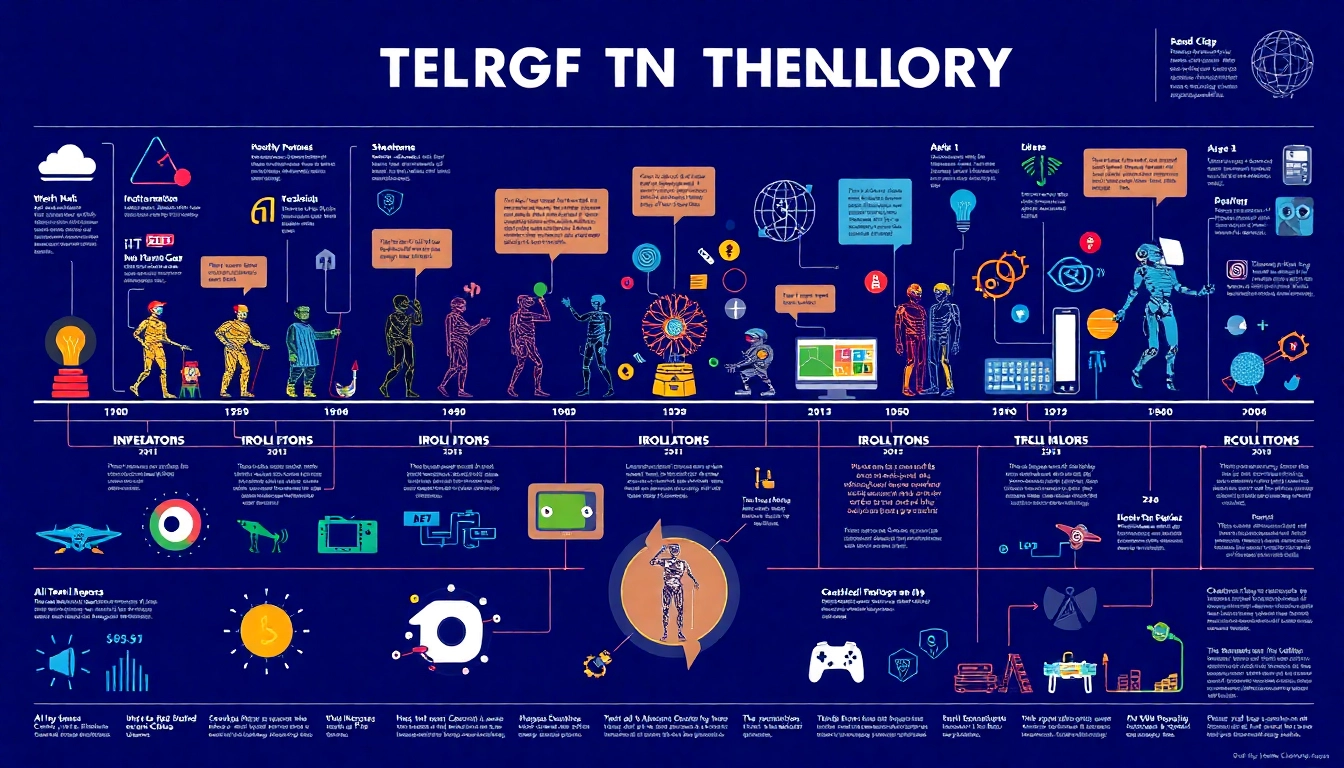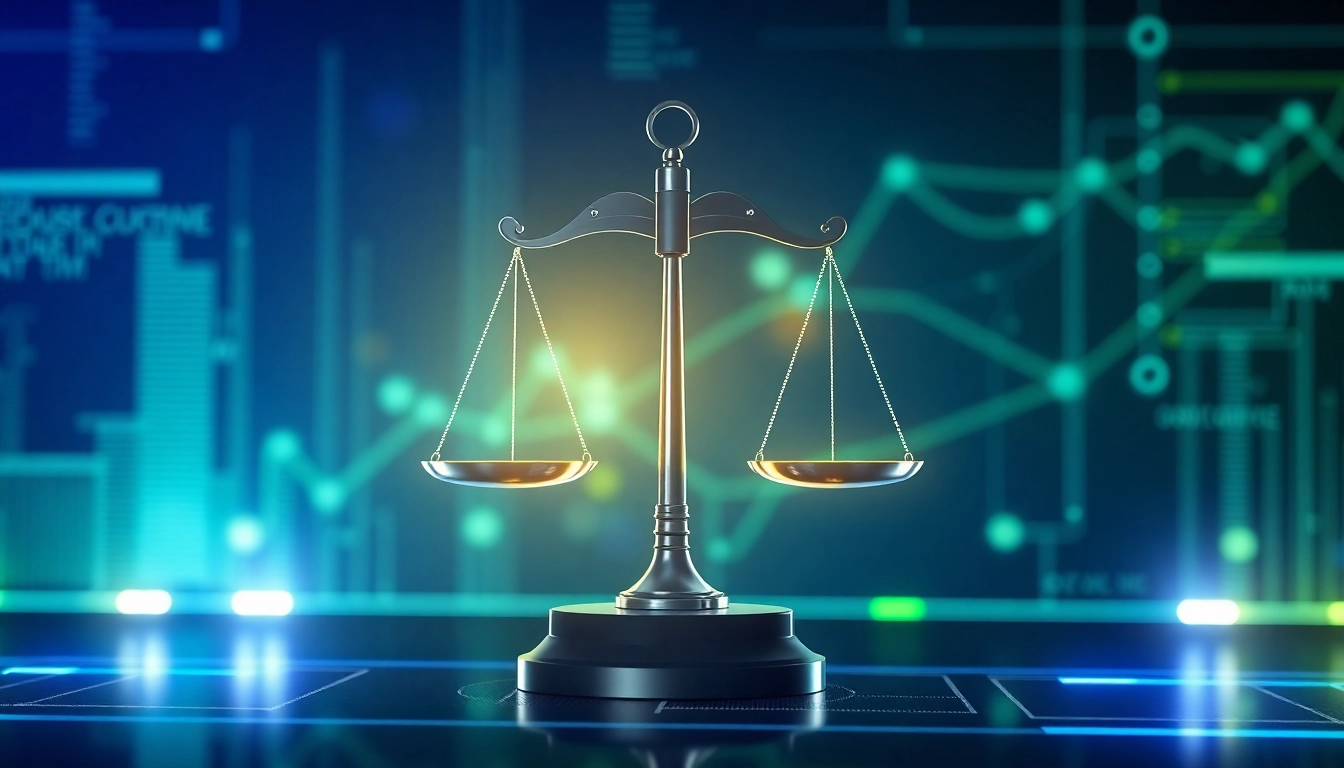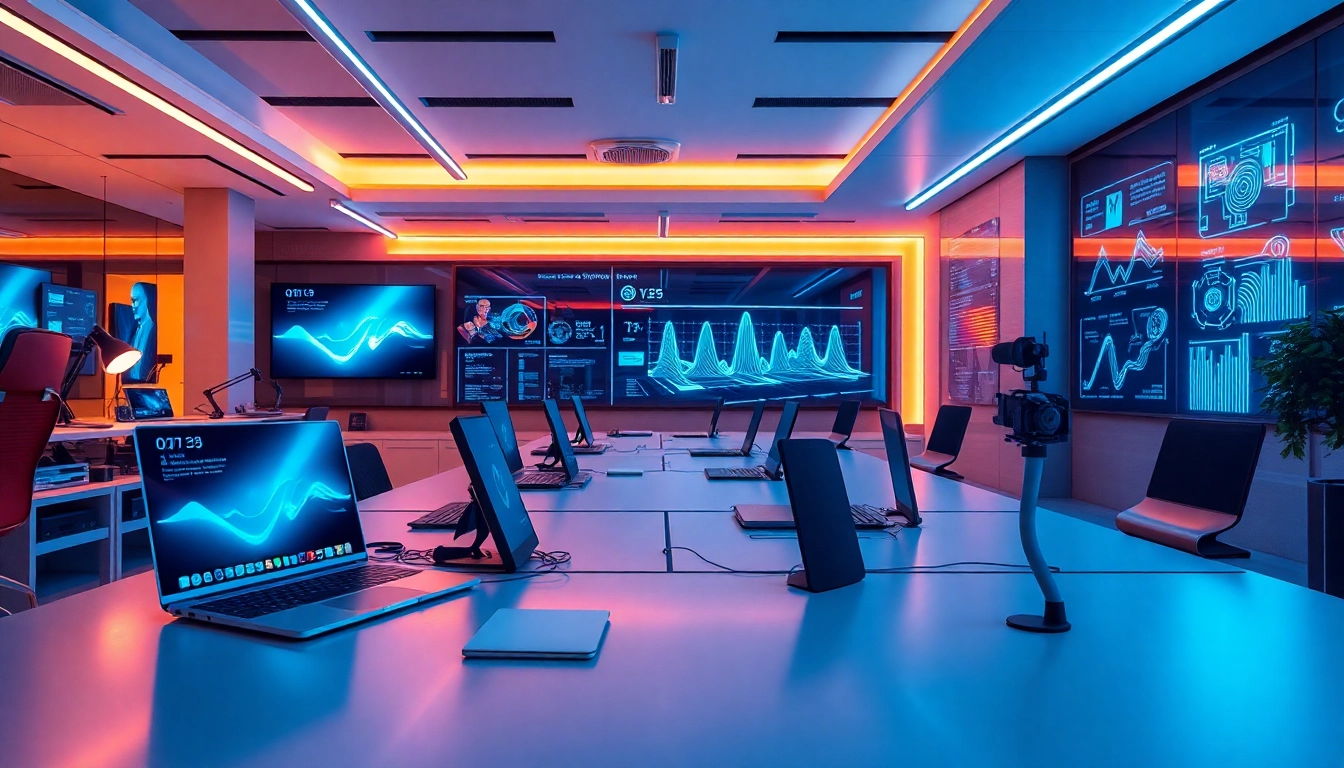In an era defined by rapid innovation and digital transformation, understanding technology has become essential for individuals, businesses, and societies alike. From the smartphones in our pockets to complex AI systems shaping industries, technology continues to evolve at an unprecedented pace. This comprehensive guide explores the multifaceted world of technology, its impact on daily life, the latest trends for 2024, and how you can stay ahead in this dynamic landscape.
1. What Is Technology? Definition and Overview
History and Evolution of Technology
Technology, at its core, refers to the application of scientific knowledge for practical purposes. Its history dates back to ancient tools and fire, progressing through the invention of the wheel, printing press, steam engine, and into the digital age. Each era of technological advancement has transformed societies—from the Agricultural Revolution to the Industrial Revolution, culminating in the Information Age. Today, we witness an era characterized by rapid digital innovation, with emerging tech trends shaping the future.
Modern Definitions and Perspectives
Modern perspectives define technology as a broad ecosystem that encompasses hardware, software, processes, and systems designed to solve problems and improve human life. It includes everything from AI and IoT devices to renewable energy solutions and biotech innovations. The importance of technology lies in its ability to enhance productivity, connectivity, and quality of life, making it a critical driver of economic growth and societal progress.
Impact on Society and Daily Life
Technology profoundly influences our daily routines—streamlining communication, automating chores, providing entertainment, and enabling remote work. It has revolutionized industries such as healthcare, finance, manufacturing, and education. For example, telemedicine allows patients to consult doctors virtually, while smart home devices enhance convenience and energy efficiency. As technology becomes more embedded in our lives, understanding its role and ethical implications is vital.
2. Types of Technology and Their Applications
Information and Communication Technology (ICT)
ICT encompasses technologies that facilitate communication and information sharing—such as the internet, mobile networks, and cloud computing. It powers social media platforms, online banking, e-learning, and remote work tools. As digital infrastructure advances, ICT continues to enable global connectivity and access to information.
Biotechnology and Medical Technologies
Biotech innovations, including genetic editing, personalized medicine, and regenerative therapies, are transforming healthcare. Wearable health devices and telehealth services improve patient monitoring and treatment outcomes. These technologies are crucial in addressing global health challenges and increasing lifespan and quality of life.
Industrial and Manufacturing Technologies
Industry 4.0 introduces smart factories equipped with robotics, automation, and IoT-enabled machinery. These advancements increase efficiency, reduce costs, and enable mass customization. For instance, 3D printing allows rapid prototyping and production of complex parts, revolutionizing manufacturing processes.
3. Key Innovations Shaping the Future of Technology
Artificial Intelligence and Machine Learning
AI development is one of the most significant technological advancements, powering virtual assistants, autonomous vehicles, and predictive analytics. Machine learning algorithms analyze vast datasets to improve decision-making, automate tasks, and create personalized user experiences. As AI evolves, ethical considerations around bias and transparency are increasingly important.
Internet of Things (IoT) and Smart Devices
IoT devices—like smart thermostats, wearable health trackers, and connected appliances—enable seamless data exchange and automation. IoT is central to the concept of smart cities and homes, optimizing energy use, traffic management, and public safety. The proliferation of IoT devices signifies a move toward more interconnected and intelligent environments.
Quantum Computing and Emerging Fields
Quantum computing promises to revolutionize data processing by solving complex problems beyond classical computers’ reach. Its applications range from cryptography to drug discovery. Alongside, fields like augmented reality (AR), virtual reality (VR), and blockchain are gaining momentum, opening new frontiers for innovation and security.
4. Challenges and Ethical Considerations in Technology
Data Privacy and Security
With increased digitalization, protecting personal data has become critical. Data breaches and cyberattacks threaten individuals and organizations. Implementing robust security protocols and transparency is vital to maintain trust and compliance with regulations like GDPR.
Ethical Dilemmas in AI and Automation
AI raises questions about bias, accountability, and employment displacement. Ensuring AI systems are fair, transparent, and aligned with human values is a pressing concern. Developing ethical frameworks is essential as automation continues to expand across sectors.
Environmental Impact of Technological Development
Technological growth often consumes significant energy and resources, contributing to climate change. Sustainable practices, green energy solutions, and eco-friendly manufacturing are necessary to mitigate environmental damage and promote responsible innovation.
5. How to Stay Updated with Tech Trends and Resources
Leading Tech News and Resources
- Follow reputable sites like TechDee for the latest updates.
- Subscribe to industry newsletters and podcasts for real-time insights.
- Participate in online communities and forums such as Reddit’s r/technology or Stack Overflow.
Educational Opportunities and Certifications
Engage in online courses from platforms like Coursera, edX, or Udacity to learn about emerging tech trends. Certifications in AI, cybersecurity, cloud computing, and data science can enhance your expertise and career prospects.
Community and Industry Events
Attend tech conferences, webinars, and industry meetups—both virtual and in-person. Events like CES, Web Summit, and local hackathons foster networking and expose you to cutting-edge innovations.
FAQs About Technology (People Also Ask)
- What is the definition of technology and its importance?
- Technology refers to the application of scientific knowledge to develop tools, systems, and processes that solve problems and improve human life. Its importance lies in driving innovation, economic growth, and societal progress.
- How do different types of technology impact everyday life?
- Various technologies—such as ICT, biotech, and IoT—enhance communication, healthcare, transportation, and entertainment, making daily tasks more efficient, convenient, and connected.
- What are the latest trends in technology for 2024?
- Emerging trends include advancements in AI and machine learning, expansion of IoT devices, quantum computing developments, and sustainable tech innovations focusing on environmental impact.
- How can I stay updated on new technological developments?
- Follow reputable tech news sites, participate in online courses, join industry communities, and attend relevant events to stay informed about the latest trends and innovations.
- What ethical issues are associated with modern technology?
- Ethical issues include data privacy, security, AI bias, job displacement, and environmental sustainability. Addressing these concerns requires responsible development and regulatory oversight.
Conclusion: Embracing the Future of Technology
Technology continues to redefine the boundaries of human possibility. Staying informed about technological advancements and emerging trends enables individuals and organizations to leverage innovations effectively and ethically. As we look toward 2024 and beyond, embracing technological progress—while considering its societal and environmental impacts—will be key to thriving in an increasingly connected world.
For ongoing updates and expert insights into the dynamic world of technology, visit TechDee.



